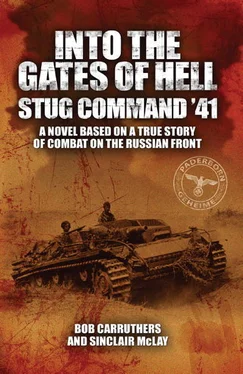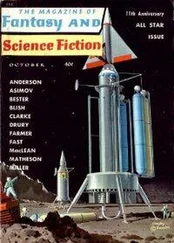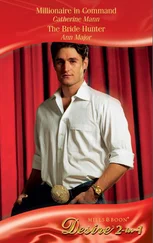Wohl thought briefly about telling the truth, but rather than an honest “No, I’m not getting a fucking word of this,” he meekly offered up a weak nod of affirmation.
“Good. However, spacing between the components of a letter was almost perfectly equal to their dit lengths. At successively higher speeds this situation changed slowly and somewhat irregularly until a rate of about ten words per minute was reached, when all four operators were forming fairly accurate patterns of sound. Nearly up to the international standard, in fact.
“The three operators who had learned by sound obviously showed no real sense of sound patterning at these very low speeds, no sense of unity, but rather just a series of separate elements strung together. Only by about ten words per minute were the code characters now felt to be entities of sound in themselves, patterns which were clear-cut in each operator’s mind and no longer shattered elements, disjointed parts.”
Otto Wohl had long since given up trying to make sense of this. The effect of his stressful morning was now beginning to catch up with him. He was struggling to stay awake and was beginning to get resentful. Oblivious to all, Sanger droned on.
“Test One,” continued Sanger. “Each operator was to copy the thirty German Morse characters sent by a machine in perfect ‘standard’ timing at each of four different speeds over the same speed range as before. At about five words per minute these experienced operators hardly recognized a single character correctly! At seven words per minute only forty per cent to sixty per cent of the letters were correctly identified. At ten words per minute all operators were getting about ninety-five per cent correct. By twelve words per minute all of them correctly identified every character. Fascinating! I’m sure you’ll agree?” Sanger paused briefly again. “Are you sure you are paying full attention, SS-Kannonier?”
“Yes, but we were up all night and in action this morning. I’m really feeling the effects.”
“Well, you might be back in action soon and, under the circumstances, it is essential that you are up to speed on the basics of radiotelegraphy. Koch observed that, in the early stages of learning, the beginner has to concentrate intensely to catch the letter rhythm-patterns. Was there anything that could be done make this easier for him?
“He observed that some teachers were speaking, or even almost singing, the sound patterns of code characters using the syllables dit and dah , whose vowel qualities and lengths make sound patterns stand out somewhat like little melodies. This helps accentuate the differences between sound patterns and simultaneously promotes an immediate sense of meaningful unity of the acoustic patterns. Could the use of two different pitches, one for dits and the other for dahs , make it easier for the new student to recognize the wholeness of the rhythmic pattern◦— the ‘melody’◦— of a code character, and make it easier to learn? Could it help reduce the stress caused by the intensity of his concentration in the early learning stages, while he is being introduced to the rhythms and trying to get accustomed to them? It looked worth a try.”
“Please make it a nutshell,” Wohl thought to himself.
“The Koch Method provides us with a proven method for learning the character set with a minimum amount of frustration. In this way, you learn the characters at full speed, from the start, and you only have to learn one new character at a time. The characters become reflex with a minimum amount of effort.” The scrawny academic finally paused for breath and prepared for the next stage of the lesson. “So, I will now go into the radio truck and transmit, while you write down. When you have finished, bring the message to me.”
Sanger went into the truck and Wohl put on the headphones. Immediately a stream of letters began to fill his headphones.“Hold on, you arsehole, give me a damn chance,” Wohl muttered to himself as he grabbed the pencil and began to transcribe the stream of letters as fast as he could.
FORTRESSVSWENDORFFINEASTFORTRESSVSWENDORFFINEASTFORTRESSVSWENDORFFINEASTFORTRESS.
Satisfied that the message was simply being repeated, Wohl moved over to the truck and opened the door to find Sanger fiddling with the transmitter and swearing roundly.
“I’ve got a message for Hauptsturmführer von Schroif: Wendorff is in the east fortress.”
“You can’t have. I haven’t started transmitting yet.”
“Well, I’m receiving this repeated message: VSWENDORFFINEASTFORTRESS.”
* * * * *
Still in the wrecked storeroom, Wendorff continued to send his desperate message. He had managed to slip away from the living hell below every day so that he could continue to transmit his despairing communication. It had become part of a demented routine, but his world stopped when he heard the crunch of glass behind him and felt the cold steel of a pistol on the back of his neck.
“Comrade, I think you have some explaining to do. Turn around.”
Wendorff froze and could feel his face flush and sweat start to form. He knew he had to turn around, so he slowly started to move, his brain working furiously to come up with as believable and plausible a lie as possible. Having turned around, he was faced with two men. One, he recognised◦— the political commissar Yefim Fomin. The other, judging by his uniform, was a sergeant in the 84th Rifle Regiment. Both were staring hard. Wendorff needed something convincing, but he could think of nothing. As a last resort, he thought he’d better just start talking and see what came out.
“I, ah… some of the men, Sir… thought that, ah…”
“Thought what?” Fomin asked curtly.
“Water, sir. We thought we might be able to attach a jar… this jar… to some fishing line and fish for water from out of the second floor window, next to the river, for the wounded, sir.”
Fomin looked through Wendorff like he wasn’t even there. An age seemed to pass. Then his face broke out into a broad smile.
“Initiative. You are to be congratulated. But take these,” he continued, picking up what Wendorff had thought earlier were a pair of gardening gloves. “Copper wire may be good for fishing for water, but it can also be used for garrotting fascists. Is that not so, Comrade Tarovsky?”
The sergeant smiled.
“Thank you, sir,” said a grateful Wendorff.
“I will take you at face value, bandsman…?”
“Oistrakh,” replied Wendorff.
“You show good initiative, Comrade Oistrakh. However, as we say in the NKVD, ‘Trust, but verify’. The sergeant will accompany you. Dismissed.”
* * * * *
As the assault guns returned, Rubbal counted them anxiously before he and his maintenance crews set about rearming and refuelling the precious machines. Sturmbannführer Voss waited for von Schroif and, with a cordial wave, summoned him into the farmhouse which served as the headquarters of Kampfgruppe von Schroif.
“Welcome back, Hauptsturmführer. Good to see that the whole command has returned safe.”
“That is something to be thankful for, Sturmbannführer. Today, at least, we have achieved our mission.”
“I was going to come to that. I have the latest orders. It would appear that we have all achieved our mission here. The Sturmgeschütze have done the best they possibly can. The fortress looks set to fall within the next few days. Victory is almost ours.”
“I have no doubt about that, but it feels like a defeat to me. We have lost too many good comrades and half the machines.”
“I understand your frustration, and your sadness, but we knew from the outset that this was the wrong assignment for the Sturmgeschütz. It was not designed to fight in a built up environment, but orders are orders and your command has progressed exceptionally well.”
Читать дальше












